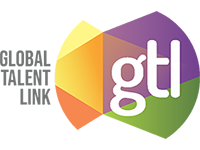Start with the Basics
Learning a foreign language is often daunting, exhausting, and at times even expensive. The good news is that it does not have to be! If you have always wanted to speak another language but have not had the time or motivation to do so, the first step is to start with the basics of the language. By beginning with simple daily habits you will find yourself leaps and bounds ahead of where you first began. For example, if you are interested in studying Chinese, rather than working towards saying a full-sentence, start by writing elementary level characters such as ‘water,’ ‘mountain,’ and ‘fire’ as well as practicing the pronunciation of each of those words.
Creating just a handful of flashcards to learn the numbers one through ten will serve as the foundation for all of the growth ahead of you. While you are waiting at a bus stop or sitting in a cafe, you can pass the time by taking out those flashcards to quickly review them. The goal of course is to be advanced enough to enjoy a conversation with native speakers, however these basic steps are essential as they are the building blocks for you to achieve that goal down the road.
Self-Discipline is Everything
As you continue to acquire the basics of a foreign language, the real challenge is setting a routine by putting those basics into practice. A self-study routine outside of school, tutoring, or group sessions will propel your foreign language skills from a basic level to an advanced one. Like with obtaining any other skill, the amount of time and effort you put forth will ultimately determine how far you will go. For helpful five tips on how to become multilingual, check out our blog post here.
Having self-discipline means developing habits and turning them into a routine you can commit to. For example, a habit of creating flashcards and listening to music in a foreign language can turn into a routine of writing and reviewing flashcards and notes on certain days then listening to music, podcasts, and audio recordings on other days to boost your listening comprehension skills. Establishing a balanced schedule of self-led learning and leisure will ensure that learning a foreign language is not something you dread but rather something you look forward to as part of your daily routine.
Practice Makes Progress
Practice requires active learning rather than passive learning, meaning reviewing textbooks and grammar points are the starting point and writing your own sentences is the deciding factor in how much you can grow. Diligent application also means consistently making mistakes along the way. The sentences you write may have numerous grammatical and spelling errors but they will also be errors you do not make in the future which is the goal to aim for.
This step is so difficult yet vital because it requires the willingness to fail and the desire to improve–both of which will enhance your foreign language proficiency. Enroll into GTL’s learning community today to learn languages such as Mandarin, Spanish, Japanese, and more by practicing with native and fluent speakers! For more information on scheduling a consultation, go to www.gtlink.us/services/ and click on ‘Schedule Consultation.’
